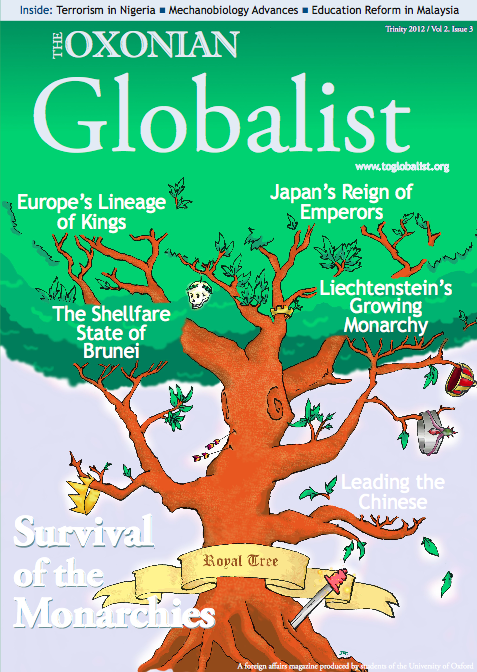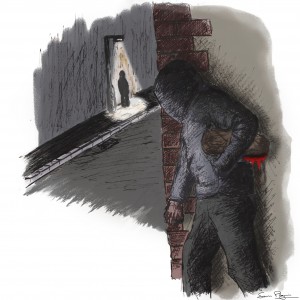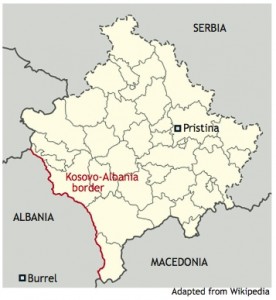THERE is a yellow house in a village in Rripe, a village near the town of Burrel in central Albania. The walls and floors are blood-splattered and there are tables on which lie various medical instruments. Some locals will tell you that the blood is from the delivery of a baby, and that the reason for the entire house being recently painted from yellow to white was in preparation for a wedding, but you would have good reason not to believe them. The story of the yellow house features in a two-year study of allegations that during the 1999 Kosovo war, the Kosovo Liberation Army (KLA) systematically harvested organs from Serbs to be sold on the black market. The Council of Europe, the executing body for the European Court of Human Rights, published the report in December 2010 and adopted it – after much consternation – in February 2011. Organ trafficking – and the alleged criminal network responsible for it – has been a long-time shadow over the story of Kosovo’s fledgling democracy.
There have been ongoing criminal proceedings by the European Union Rule of Law Mission (EULEX) over post-war organ trafficking in Pristina, the Kosovoan capital, and a number of individuals have been charged with participating in the responsible criminal network. Allegations of wartime trafficking, beginning with the story of the yellow house in 2004, have been handled separately by the International Criminal Tribunal for the Former Yugoslavia (ICTY) and United Nations Mission in Kosovo (UNMIK). But the current report is a response to the 2009 publication of The Hunt: Me and the War Criminals in which Carla del Ponte, former Prosecutor at ICTY, made the strongest allegations against the KLA to date – among them, organ harvesting. The high-profile revelations could result in criminal investigations, but only if EULEX can supply legal infrastructure and political will.
A Row of Yellow Houses
The findings of the Council of Europe report centre on an organisation within the KLA called the Drenica Group, named after the region traditionally known to be a hotbed of KLA activity. Hashim Thaqi, present-day prime minister of Kosovo, was the wartime leader of the group, which controlled a host of criminal enterprises in both Kosovo and Albania. While Drenica has been found to be involved in beatings, detentions, money-laundering, and assassinations related to narcotics trafficking, its most sinister trade was not in drugs, but in organs.
The report states that the infamous yellow house served as a “way station for those taken captive for organ trafficking… The end point was the detention centre in Fushe–Kruje, a two-storey farmhouse set back from main roads but in close proximity to Tirana Airport, where the organs could be shipped abroad.” The report finds at least six separate detention facilities, ranging from Cahan in the far north to Durrës on the Medi- terranean coast. Three of the six were operational during the conflict between April and June 1999, during which the breakdown of the Kosovo-Albania border allowed easy transportation of victims.
The methods used to procure the commodities from the victims have often been given the macabre title of organ-harvesting. The Council of Europe report includes testimony of witnesses that “credibly and consistently” state that captives were killed “usually by a gunshot to the head, before being operated on to remove one or more of their organs.” European Union prosecutor Jonathan Ratel testified that the KLA promised £12,000 per organ to lure victims from as faraway as Moldova, Turkey, and Russia.
Western Complicity
The report’s author, Swiss senator Dick Marty, has given an unequivocal acknowledgement of KLA brutality, commenting in the report itself that he “examined these diverse, voluminous reports [of organ harvesting with consternation and a sense of moral outrage.” The West, arguably, shares some of the blame for the crimes.
When the KLA first emerged in 1996, a year after the wars following the break-up of the former Yugoslavia had ended, the West denounced its attacks on the Yugoslav state as terrorism. Only two years later, however, the KLA received explicit endorsements from various Western powers and, as such, the world began to see it as the leading force in the struggle for the freedom of Kosovar Albanians; the CIA and SAS even helped train and arm its members. In a recent interview, Marty explained the West’s attitude at the time: “I think that the philosophy in the beginning was – and this is the expression used by American diplomats – the past is past; we need to look toward the future. As they saw it at the time, they had chosen the team that seemed most up to the task of controlling the local authorities. Political stability and political expediency outweighed the sense of justice, to put it simply.”
The new Council of Europe report – more extensive than any investigation to date – could throw off this US balancing act.
I spoke to Sir Ivor Roberts, British ambassador to Yugoslavia from 1994-1997, about the United States’ response. He admits that “These allegations… produced an inconvenient truth for those Western countries who had decided to support the KLA.”
That much is true. But if the Council of Europe report is not followed by criminal investigations, the United States may be able to sweep its alleged support for organ harvesters under the rug. According to Roberts, criminal investigations will be hard to justify until more evidence is collected to verify the report. He told me, “until a thorough investigation has been completed it is impossible to verify the extent to which these allegations prove to be accurate.”
The truth about what activities the KLA partook in will be extremely difficult to come by; in his report, Mr. Marty repeatedly cites the desperate need for effective witness protection in Kosovo. Of the forty witnesses who spoke up in the 2007 Hague trial of Kosovo’s former prime minister, none would testify in court and several were killed. EULEX, who would be in charge of a further investigation, has no agreements with other countries to which they could relocate witnesses. The threat of further investigation does not appear to worry the prime minister, who – despite claiming that the report was a fraud intended to discredit the KLA – has called for investigation by EULEX and promises his full cooperation. His claim that Kosovo’s government “looks forward to the cooperation of our international partners in ensuring that criminality has no place in Kosovo’s development”, is laughable for a man who has been open about his criminal past and is suspected of having a criminal present.
The United States may have planted democracy in Kosovo, but it has come at a heavy price. The international community must heed the Council of Europe’s advice and conduct a thorough investigation of the claims with all necessary measures, such as a functioning and reliable witness protection programme. Both the European Union and the United States must not hide this dark chapter of history for the sake of political expediency.





